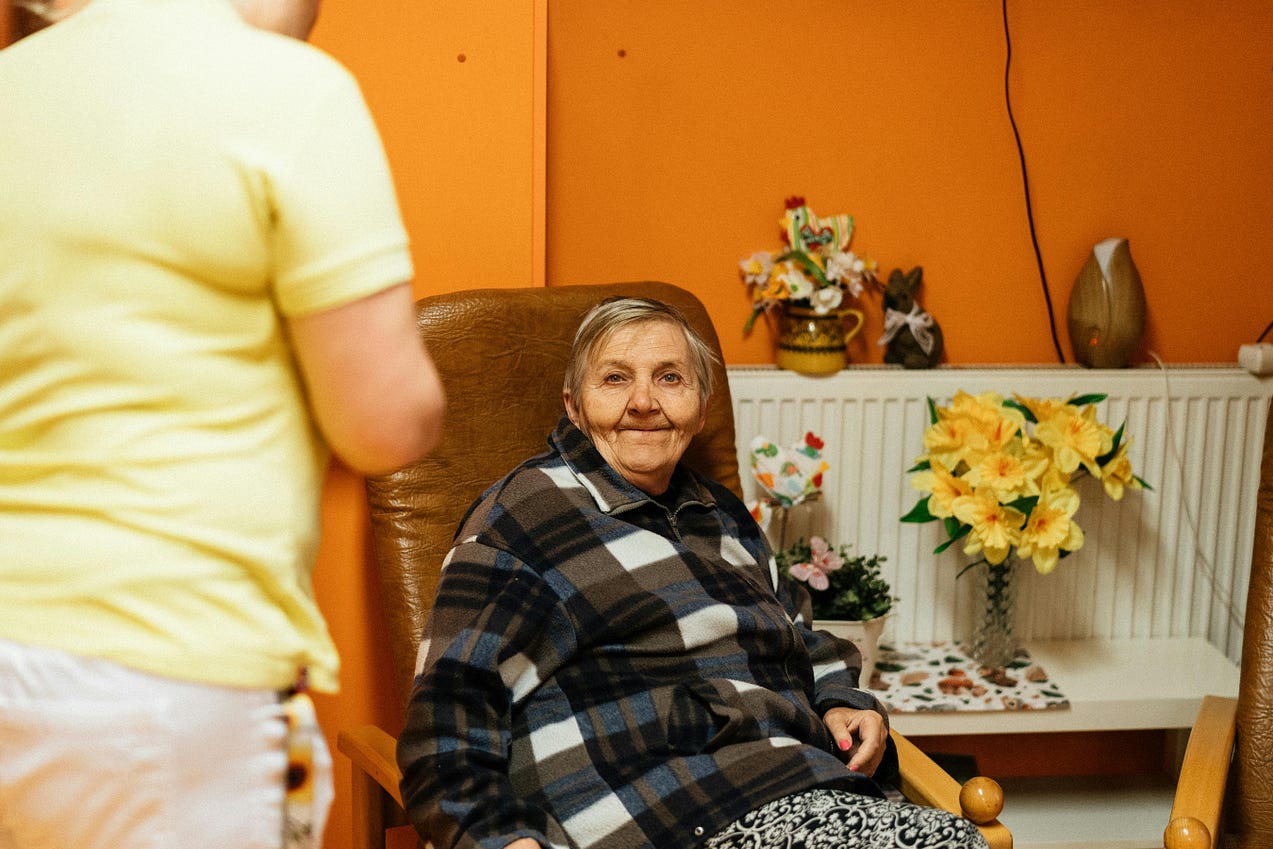When family needs and individual needs collide

The hospital social worker called me and told me my aunt had checked herself out of the geriatric mental health unit, where she was for treatment of depression, against medical advice. I sighed and told the social worker my aunt often did things against anyone’s advice, and I could do nothing about it.
I had given up trying to enforce filters and boundaries for someone who had none.
My aunt was very generous, loud, and rambunctious. She was a fundamentalist Christian missionary. Her brother and sister had died, and her nephews and nieces (including me) were her only family. She had taken the oldest nephews and nieces (including me) on some special trips both as children and later as teens/young adults.
Like many family members, she was wonderful and awful and embarrassing.
How embarrassing? When we were traveling together, she asked the waitress what her niece could order when she had traveler’s diarrhea. When we were at the pool, my very large aunt thought she could swim in her underwear because many young women were wearing bikinis with much less material. I returned from a 15-minute stop at a convenience store and gas station, where my aunt was in the car with my 4-year-old son, to have my son report that Auntie had told him all about the devil.
I find fundamentalist beliefs counter to almost everything I believe. They are not the values I want to pass on to my children.
I learned when she was about to board the plane from the East Coast that she had decided to move into an assisted living/continuing care complex in my midwestern city. She told me that my sister and I could take care of her, and do her laundry. I was a single mother with two teen sons and I was a senior manager in an organization. I had my hands full and no time.
I set boundaries, explaining I had little time. My brother never visited the nursing home, because “he didn’t like nursing homes.” I told him to get over it, nobody liked visiting nursing homes.
Then my aunt went into a deep depression. She was more dependent, resisted physical therapy, and chose to use a wheelchair. She questioned her religion and all her basic beliefs. I couldn’t stand the proselytizing piece of her behavior, but I felt she was a different person without it. I wanted her personality, difficult as it was, back to the person I knew.
I guess this change falls into the category of “Be careful what you wish for.”
As I am writing this remembrance, I think I should feel guilty about how I did not meet her expectations. But I don’t. I was continuously taken aback by her expectations.
I have forgotten how many years she lived in our city — at least three, maybe more. She died somewhat unexpectedly after her 85th birthday. We had celebrated her birthday in her room. My son had just taken her out for a Chinese food dinner, a favorite of hers.
My son was graduating high school, and my aunt had died, and my obligations to stay in my job and city were ending.
I met with the chaplain at the nursing home to plan my aunt’s memorial service. My aunt and the chaplain had not seen eye-to-eye. That’s no surprise, as my aunt had very clear ideas of what a man of God should be like, and this woman chaplain was not a man of God. The chaplain, however, was very professional.
We pared down my aunt’s wish for an all-day funeral and 24 hymns, all verses, to two hymns with three verses, and a service that would last about 45 minutes. Many of her friends and peers had predeceased her. The memorial service was sparsely attended, but some people from previous parts of her life were there.
Why am I telling this story? We are exploring depression and senior adults. We are exploring the conflict between individual needs and family and community needs.
There are no easy answers. Each situation is different. Each relationship is different. Sometimes one is navigating the ground between two undesirable outcomes or emotions, like guilt and resentment. We can share stories to understand what our priorities are, what we give up, and what we gain.
We also can make decisions and plans that will hopefully make life decisions easier for our caretakers. I hope to go quickly and quietly and prepared, but not all of us will be granted that wish. We should, as a gift to those we care about, plan the easiest ending we can.

Elise Albert
She clearly trusted you, and like it or not, knew you would have her back—-high praise from such a one. Rest in peace, both you and your aunt…..